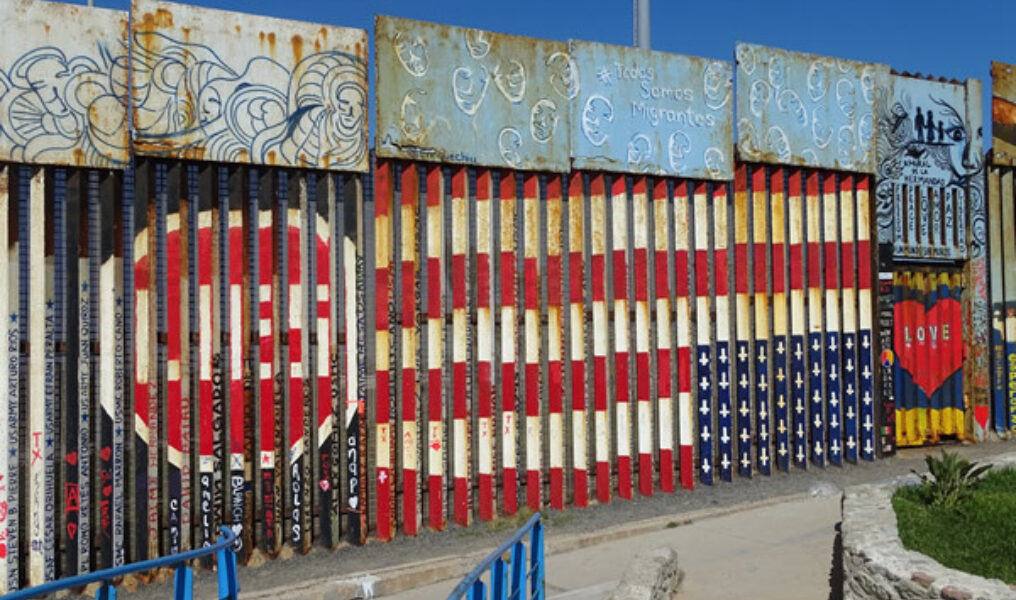Washington Blade Staff Report
The U.S. District Court for the Northern District of California issued an order on Friday blocking, in its entirety, a Trump administration rule that would have made it virtually impossible for all refugees, including those who are LGBTQ or living with HIV, to secure asylum in the U.S. The rule was set to go into effect on Jan. 11.
"Today's ruling halts the most sweeping illegal, anti-refugee volley of the Trump administration," said Bridget Crawford, legal director for Immigration Equality. "Asylum is an international human right. LGBTQ and HIV-positive refugees fleeing persecution will always be welcomed in the U.S."
The case, Immigration Equality v. Department of Homeland Security, was filed on behalf of plaintiffs Immigration Equality, Oasis Legal Services, The TransLatin@ Coalition, Black LGBTQIA+ Migrant Project, and Transgender Law Center. Had the rule been allowed to go into effect, the population these organizations directly serve, asylum seekers who are LGBTQ or living with HIV, will face insurmountable barriers to asylum in the U.S., despite the fact that they have remarkably strong asylum claims.
In his ruling, U.S. District Judge James Donato wrote:
"In effect, the government keeps crashing the same car into a gate, hoping that someday it might break through … But our system has no room for relitigating the same facts and law in successive district court cases ad infinitum … Plaintiffs provide legal services and other assistance to those seeking asylum and similar protections from persecution or violence in their home countries. They have provided ample evidence that if enacted, the Rule would harm this mission. … A nationwide injunction is warranted."
Lambda Legal's senior attorney on immigration matters, Omar Gonzalez-Pagan reacted on Twitter to Donato's ruling.
"This rule is part of the Trump administration's relentless efforts to close our doors to migrants and here, in particular, to refugees escaping persecution, even as the administration's days wane. The rule is rooted in xenophobia and cruelty. It also is a haphazard attempt to enact a sweeping and unworkable overhaul of our asylum system, without adequate justification or compliance with the law," said Gonzalez-Pagan in a statement. "Lives are at stake and we are relieved that the court has put this abhorrent policy on hold while we continue to make our case. We are gratified by the court's quick action and confident that these attempted changes will never take effect."
The rule — promulgated by the U.S. Department of Justice and‚ÄØ the U.S. Department of Homeland Security — is especially dire for people who are LGBTQ or living with HIV, who have no other recourse but to flee the unimaginable violence they experience in their countries of origin. In over 70 countries it is a crime or fundamentally unsafe to be LGBTQ or HIV-positive. The suit challenges multiple sections of the rule for creating numerous reasons why immigration judges should deny claims of refugees who otherwise qualify for asylum.
The rule denies asylum to people who:
- apply for asylum based on fear of persecution due to their gender, which may be interpreted by authorities as including LGBTQ asylum seekers;
- didn't apply for asylum in a transit country, regardless of whether that nation is safe;
- stayed in a transit country for more than 14 days, even if they were trapped in that country;
- lived in the U.S. for more than one year without permission, even if they qualify for an exception to the one-year filing deadline;
- have otherwise strong claims of persecution if they are unable to prove that government officials participated in the abuse (e.g. violence by private actors, such as civilians who perpetrate mob violence or so-called "corrective rape," will not count as evidence toward an asylum claim);
- are unable to explain in their first interaction with immigration officials the particular social group they are a part of, requiring LGBTQ and HIV-positive people to disclose and describe their identity and intimate details about their personal lives with particular concepts and language.
This article originally appeared in the Washington Blade and is made available in partnership with the National LGBT Media Association.










